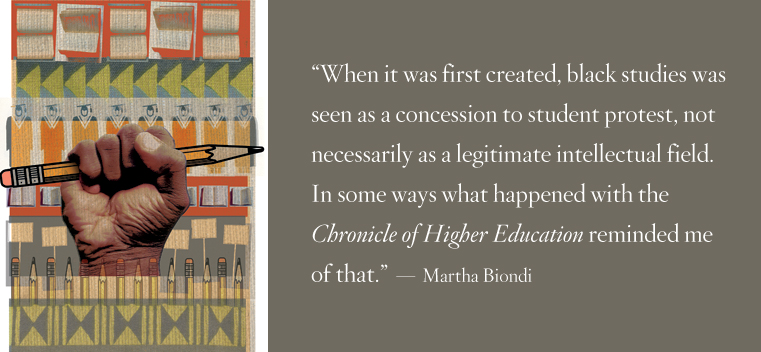
A Beautiful Struggle
Tell us what you think. E-mail comments or questions to the editors at letters@northwestern.edu.
Ever wonder about those strange designations we use throughout Northwestern to identify alumni of the various schools of the University? See the complete list.
Find Us on Social Media
African American studies doctoral program creates new scholarly leaders.
In mid-April Northwestern hosted “A Beautiful Struggle,” a landmark gathering of African American studies doctoral students and faculty from across the country. It was a commemoration of the growth of the field as a whole and a milestone celebration of the scholarship from Northwestern’s first cohort of soon-to-be PhD graduates. The department’s first graduate, Kortney Ziegler (G11), completed his degree last year.
Two weeks after that conference a Chronicle of Higher Education blogger suggested that, based on her review of Northwestern students’ dissertation topics, the entire discipline of African American studies should be eliminated.
Northwestern professor Martha Biondi felt she had stepped back in time.
“When it was first created, black studies was seen as a concession to student protest, not necessarily as a legitimate intellectual field,” says Biondi, director of Northwestern’s graduate program in African American studies. “In some ways what happened with the Chronicle of Higher Education reminded me of that.”
But a swift national response reassured Biondi that things had changed.
“All of a sudden there were petitions circulating. We were getting flooded with emails of support. … The message coming from across the country was very strongly saying this is a legitimate discipline in academia.”
The incident, says African American studies chair Celeste Watkins-Hayes, reminded “us that there still is a struggle.”
Biondi, a historian, described that struggle in her new book, The Black Revolution on Campus (University of California Press, 2012), released in August. The book broadly examines the desegregation of higher education in the United States and explores that development in the narrative of the modern black freedom movement.
Biondi says historians often portray 1968 as the end of the civil rights movement. However, “another very important nationwide chapter in the modern black liberation movement” occurred after the assassination of Martin Luther King Jr., “an event that precipitated the intensification of direct action protests on lots of campuses. This chapter created reforms that have been vital to changing the opportunity structure in this country and expanding the black middle class,” including the creation of affirmative action in college admissions and the creation of African American studies programs, departments and centers.
Northwestern is a classic example of this narrative. In May 1968, just a month after the assassination of King, a group of students organized a sit-in of the Bursar’s Office. The peaceful protest produced the May 4 agreement between the protestors and the administration, sparking several changes in campus culture, including the creation of the Department of African American Studies in fall 1972.
The recent Northwestern conference celebrated the department’s 40th anniversary (see “Coming of Age,” spring 2005). In 2006 the University became the seventh institution to establish a doctoral program.
Several Northwestern doctoral students presented their research during the recent conference. La TaSha Levy, who studied with Northwestern sit-in organizer James Turner (G68) in the Africana studies program at Cornell University, discussed modern black conservatism. Keeanga Yamahtta Taylor presented her findings on scandals related to federal housing policies in the 1970s. Dwayne Nash discussed the policy roots of racial profiling in New York state. Tera Agyepong (L11), who recently accepted a teaching position in the history department at DePaul University, discussed her research on the experiences of African American children in the juvenile justice system in Cook County between 1893 and 1950.
The variety of topics shows the depth and breadth of the field, says Watkins-Hayes. “It really focuses on ways in which black people all over the world have organized to create social movements, to shape national politics, to create cultural art forms, to build community,” she says.
Most important, Watkins-Hayes says Northwestern’s doctoral program is “helping to shape the state of the field by creating a new cadre of scholars. Their work is interdisciplinary, methodologically rigorous and conceptually creative. This is an exciting time for the field and our department. Our conference marked an important moment for both, and we look forward to what the next era will bring.”



 Facebook
Facebook Twitter
Twitter Email
Email


